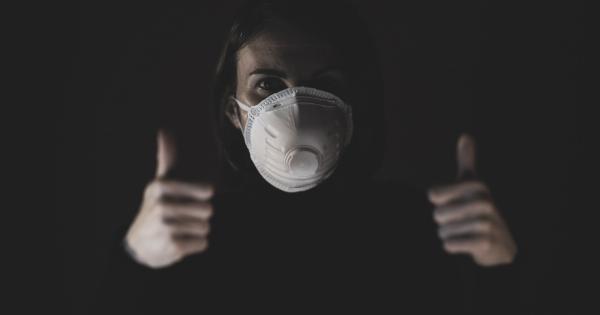Bronchitis is a respiratory condition characterized by inflammation of the bronchial tubes. These tubes are responsible for carrying air to and from the lungs.
When they become inflamed, they produce excess mucus, leading to coughing and difficulty breathing. There are two types of bronchitis: acute and chronic.
Acute Bronchitis: Causes and Symptoms
Acute bronchitis is usually caused by a viral infection, such as a cold or flu. It can also be triggered by exposure to irritants like smoke, dust, or chemical fumes.
The most common symptom of acute bronchitis is a persistent cough that may produce clear, yellow, or green mucus. Other symptoms include:.
- Sore throat
- Chest congestion
- Shortness of breath
- Fatigue
- Mild fever
Treating Acute Bronchitis
Acute bronchitis is often managed with home remedies and self-care measures. Some effective ways to treat acute bronchitis include:.
- Get plenty of rest to allow your body to heal and recover.
- Drink fluids to stay hydrated and help thin out mucus.
- Use a humidifier or take hot showers to alleviate chest congestion.
- Gargle with saltwater to relieve a sore throat.
- Over-the-counter cough suppressants can help control coughing.
- Avoid smoking and exposure to secondhand smoke.
Preventing Acute Bronchitis
Some preventive measures can help reduce the risk of developing acute bronchitis:.
- Wash your hands regularly to minimize the spread of viruses and bacteria.
- Avoid close contact with individuals who have respiratory infections.
- Quit smoking and avoid exposure to secondhand smoke.
- Get vaccinated against the flu to prevent respiratory infections.
- Protect yourself from airborne irritants by wearing a mask in hazardous environments.
- Maintain a healthy lifestyle with regular exercise and a balanced diet to strengthen your immune system.
Chronic Bronchitis: Causes and Symptoms
Chronic bronchitis is a more severe and long-lasting condition. It is a type of chronic obstructive pulmonary disease (COPD) and is primarily caused by smoking or long-term exposure to lung irritants like air pollution or chemicals.
Symptoms of chronic bronchitis may include:.
- Persistent cough that lasts for at least three months
- Excessive mucus production
- Wheezing
- Chest tightness
- Shortness of breath, especially with physical activity
Treating Chronic Bronchitis
While there is no cure for chronic bronchitis, certain treatments can help manage symptoms and improve quality of life:.
- Medications such as bronchodilators and inhaled steroids can help open the airways and reduce inflammation.
- Pulmonary rehabilitation programs can provide exercise training and education to improve lung function.
- Oxygen therapy may be prescribed to improve oxygen levels in the bloodstream.
- In severe cases, surgical interventions like lung transplantation or lung volume reduction surgery may be considered.
Preventing Chronic Bronchitis
Preventing chronic bronchitis revolves around avoiding the primary cause, which is usually smoking or exposure to lung irritants. Here are some preventive measures:.
- If you smoke, quit smoking immediately. Seek professional help if needed.
- Avoid exposure to secondhand smoke and other harmful substances at home or in the workplace.
- Wear a mask or proper protective gear when working in environments with irritants or pollutants.
- Follow good hygiene practices to reduce the risk of respiratory infections that can worsen chronic bronchitis.
When to Seek Medical Assistance
Although most cases of bronchitis can be managed at home, it is essential to seek medical assistance if:.
- Coughing persists for more than three weeks
- Fever of 100.4°F (38°C) or higher
- Coughing up blood
- Severe shortness of breath
- Wheezing or chest pain
Conclusion
Bronchitis, whether acute or chronic, can significantly affect your respiratory health. By following preventive measures, managing symptoms, and seeking medical assistance when necessary, you can minimize the impact of bronchitis on your daily life.
Remember, quitting smoking and avoiding lung irritants are crucial steps towards preventing chronic bronchitis and maintaining healthy lungs.





























